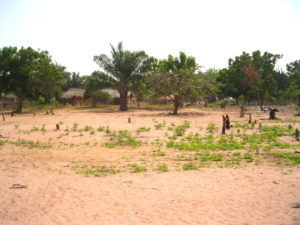Stakeholders call for land use policy
 Stakeholders in the Upper West Region have called on Parliament to enact a land use policy as soon as possible to safeguard the environment.
Stakeholders in the Upper West Region have called on Parliament to enact a land use policy as soon as possible to safeguard the environment.
The stakeholders said the lack of land use laws, was a serious disservice to the land policy which alone could not provide the needed protection for the environment, especially water bodies and other water resources.
The participants comprising traditional rulers, officials from Ghana Forestry Commission, Community Water and Sanitation Agency, and non-governmental and civil society organisations in the Black Volta Sub-Basin in the Upper West Region, raised the concern at an “information and awareness creation” meeting held in Wa.
The Volta Basin Authority (VBA) organised the meeting to build the capacity of local stakeholders in the area of good water governance, mainly improving water management in the Basin.
The contributors said there was high chemical pollution and siltation on the Basin, while it was also faced with siltation challenges due to unorthodox human activities, such as bush fires, farming, illegal mining, and wanton felling of trees among others along the Basin.
The stakeholders called for the enactment and enforcement of environmental laws to punish people from engaging in activities which were detrimental to the survival of the Volta Basin.
Planting of useful trees such as cashew and mango along the banks of the Black Volta River to create alternative livelihoods for people would help reduce the indiscriminate destruction of the Basin’s environment.
The participants appealed to government to stop giving concessions to timber companies to harvest rosewood in the communities because the activities of the companies were exposing the environment to desertification and causing the depletion of water bodies.
Dr Rafatou Fofana, a Hydrologist at the Volta Basin Authority, said dimensions of water governance were responsibilities of the various decision-makers from public and private sectors, community members and civil society organisations.
She said such responsibilities must be constructive, a motivation of all stakeholders to meet for participate collectively at the initiation to make the decisions coordinated decision.
She said the principle of effective water governance involved transparency, responsibility and participation of all the state members of the Volta Basin.
Dr. Fofana who spoke on: “Transboundary Water Governance in the Volta Basin”, said good governance emerged when parties were engaged and they participated together in an inclusive and transparent process for best services.
The VBA Hydrologist mentioned land degradation, water shortage, and loss of biodiversity, flooding, water borne diseases and invasive aquatic plants as some of the challenges the Basin was faced with.
Dr. Fofana suggested the development of a master plan and water charter for the Basin while efforts were made to implement priority actions in the Basin and capacity building for local stakeholders.
The traditional rulers affirmed their support to help implement the laws in the communities to ensure that human activities which caused environmental degradation and siltation in the Basin were minimised.
Source: GNA
